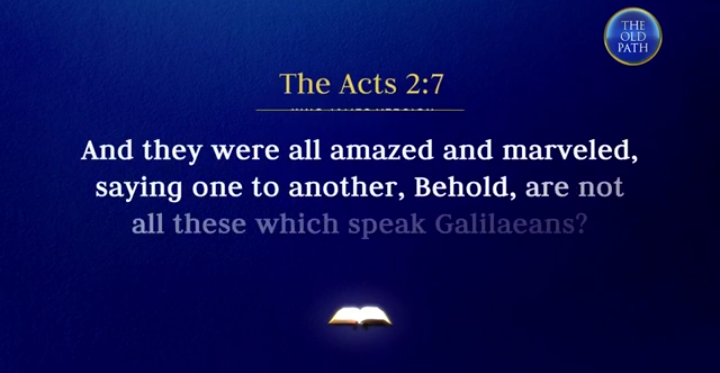Speaking in Tongues: What the Bible Says. MCGI Topic Review

Do you ever think about what is meant by "speaking in tongues" in the Bible? This video talk by Brother Eli Soriano might really make you think differently of it. Let us get into this lecture and find out some truth about this spiritual gift that is often misunderstood.
Brother Eli Soriano begins thiy video teaching with a simple but profound statement: speaking in tongues means speaking another language than one’s first or mother tongue. It was not an enigmatic, unintelligible gibberish, but rather a way of expressing oneself in another foreign language.
Brother Eli then points to the book of Acts in the Bible to show this fact. He mentions the occurrence that took place on Pentecost where apostles who were all Galileans started speaking in other language. However, something supernatural occurred – their words went straight into the ears of those listeners according to each one’s native language!
In order to illustrate how amazing it was, Brother Eli cites from the Holy Bible: "And they were all amazed and marvelled, saying one to another, Behold, are not all these which speak Galileans? And how hear we every man in our own tongue wherein we were born?" This scripture demonstrates without doubt that speaking with other tongues had nothing to do with gibberish but being understood in different languages.
Brother Eli makes this concept more relatable by providing some everyday examples. According to him, speaking in tongues may be a Filipino speaking in English or an American speaking French. It is about using languages or dialects different from one’s own – Filipino tongue, American tongue, British tongue and Australian tongue. These represent different languages or dialects.
Brother Eli Soriano challenges some of the general misconceptions regarding speaking in tongues that are held by many religious denomination today. He points out that some pastors together with members of the church claim to speak in tongues whereas what they do is merely speak “things which nobody knows.” This according to Brother Eli is not at all a biblical concept of speaking in tongues.
Speaking about the true miracle of speaking in tongues; Brother Eli explains how it was through divine translation and not making any sounds that were unintelligible. The apostles spoke using their Galilean language however their words were automatically-translated into the languages spoken by those who listened to them –“the tongues wherein they were born” as the Bible puts it.
Brother Eli has opened our eyes that the biblical speaking in tongues was actually about existing languages and dialects. It wasn’t an invention of new words or speaking a “heavenly language” that nobody could understand.
The video teaching encourages us to re-examine our perspective on spiritual gifts. It reminds us how some of God’s miracles serve practical ends: breaking down language barriers to take the gospel message unto all men.
Moreover, Brother Eli’s insights urge us to judge carefully current religious practices. Today when we see people saying they speak in tongues, we need to ask ourselves; do they speak real known languages? Or are they using made up phrases that have no meaning in any earthly language?
On reflection of Brother Eli Soriano’s video teaching, we are called out for inconsistency with what the Bible teaches regarding spiritual gifts. Biblical speaking in tongues as it were is described as the gift of being able to communicate across linguistic boundaries—a way of uniting people and spreading the word of God throughout many nations.
Finally, after watching Brother Eli Soriano’s video on speaking in tongues, it became apparent that his point of view is unique and has a strong basis in the Bible. It is there to make sure that we don’t go by everything we hear but test it with the word of God. While studying the bible as we grow our faith, let us endeavor to comprehend and put into practice God’s word precisely such as illustrated by Brother Eli Soriano in teaching about speaking in tongues through a video recording.